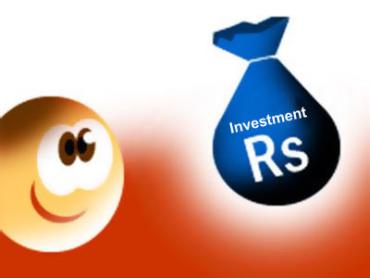
Balaji, a 27-year-old Chennai resident works for an MNC. His day is fully packed. Today he has got a deadline for a particular assignment. First thing in the morning, he receives a mail from his HR department stating that today is the last date for producing proofs for tax saving investments; otherwise a huge amount will be deducted from his salary as tax.
He wanted to do some tax saving investments urgently and submit the proof on or before end of the day.
Mahesh, also about Balaji's age, is an NRI working for a software company in the US. He has got a couple of crores in his overseas fixed deposits giving a return of 1.5 per cent per annum. Returns are taxable. At times, he thinks that the return he gets is very low.
He wanted to check up with a professional financial planner in India. He thinks he will contact as soon as his present project gets completed. Like this he has not contacted any financial consultant for the last 3 years because of some reason or the other.
The point I am trying to make here is most of the investment decisions are either taken because of some compulsion or urgency or postponed because of compulsion or urgency in some other area of life.
This is because we want to complete urgent things first not the most important thing. Many important things that contribute to our overall financial objectives and produce wealth for us don't tend to apply any pressure on us. They may not be urgent, but they are the things that we must give importance to and carry out immediately.
Ramalingam K, an MBA (Finance) and certified financial planner, is founder & director of Holistic Investment Planners (P) Ltd. He can be reached at ramalingam_007@rediffmail.com.

We act upon things like pressing problems, deadline-driven projects, and official meetings. We don't give importance to:
Why, then, are we not able spend time on important things and spend most of our time on urgent things? Because, we are following a way that focuses on how fast or efficiently we are getting things done. We are not following a way that focuses on why we are doing things.
Take, for instance, Balaji's case. Why didn't he do his tax planning during the beginning of the financial year itself? Why is he chasing it at the last minute? Balaji is much worried about his deadline for assignment than tax planning.
As he is making investment urgently, it is difficult for him to choose the right financial advisor and also difficult to judge which one would be the best tax-saving option for him. He will be investing with an advisor who can get the investment proof on the same day.
Is this the basis on which we select an investment advisor? Will Mahesh's relationship with this advisor be of long term? Will this investment be of any help to Balaji in meeting the higher education expenses of his son after 15 years?

Coming back to Mahesh, he had couple of crores at 1.5 per cent pre-tax return. He could have tripled his returns by investing in an Indian liquid fund which is very safe. There are far better investment options available for him to choose. But he has settled for 1.5 per cent. If he could have spent a day or two in carefully choosing the right financial advisor and investment product he could have earned more. The earning opportunity which he missed with his investments might equal to his 6 months or 1 year salary.
He could have generated that passive income equivalent to 6 month or 1 year salary without any pressure from the top management; without meeting any deadlines by just spending a day or two.
We are all working hard for money. But is our hard earned money working for us or lying in our savings bank account?
We find a ladder and see there are so many people trying to reach the top of the ladder faster. Then we also follow the group, deadlines to be met in each and every step focusing more on reaching the top and finally reached the top.
Only after reaching the top, do we realise that we have come to a very wrong place or a place which is not worth missing so many things and opportunities in life. This is how today's world is.
Nothing wrong in working harder or focusing more on completing the assignment or spending more time on finishing a project before deadline. These are all good thing to do. But always remember, there are better and best things to do. We place too many good things ahead of a few best things.
Setting up financial goals, working out a plan for achieving those goals and implementing those plans are all best things to do in life. You know in advance where you want to reach exactly, by doing this exercise. As we progress, we enjoy the journey. As we reach the place, we really feel happy and we have not missed any important thing on the way.
Procrastination and not giving priority to financial goals and investment plans is a costliest mistake one can make. So let us stop procrastinating and give priority to our financial goal setting and investment planning. Then life will be really so beautiful.